Khamenei's Mouthpiece Daily Demands Russia Take Harder Line Against Israel
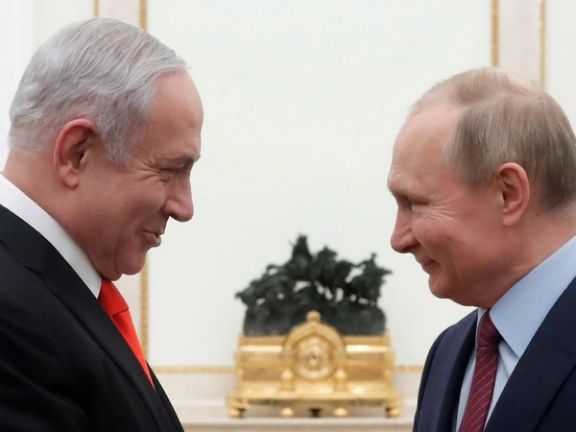
An Iranian newspaper linked to the Supreme Leader has called for Russia to take a harder line against Israel over Gaza.

An Iranian newspaper linked to the Supreme Leader has called for Russia to take a harder line against Israel over Gaza.
Kayhan, a daily paper affiliated with Ali Khamenei's office, said that the least expected from Moscow, as an ally, is to condemn what it refers to as “Israel's heinous crimes in the Gaza Strip”.
The newspaper urged Russia to play a more active role in condemning Israeli actions in Gaza, emphasizing that such support for the Palestinian cause would enhance Russia's “credibility and prestige globally”.
Kayhan highlighted the potential diplomatic advantages for Russia and suggested that swift action is essential.
The paper also claimed that the contribution of the Palestinian “resistance front” has benefitted Russia. Kayhan suggested the October 7 Hamas attack had possible diplomatic and geopolitical outcomes that will benefit Moscow.
This comes in the wake of Israeli Prime Minister Benjamin Netanyahu expressing disapproval of Russia's cooperation with Iran. Netanyahu raised concerns similar to those voiced by the United States, criticizing Russian statements against Israel's military operation in Gaza.
Recent diplomatic developments include Putin's visits to the United Arab Emirates and Saudi Arabia, followed by talks with Iranian President Ebrahim Raisi in Moscow. The discussions involved the Middle East crisis, with Iran and Qatar advocating for a ceasefire in Gaza. Israel and the United States argue that such a ceasefire would benefit Hamas and potentially lead to future crises.
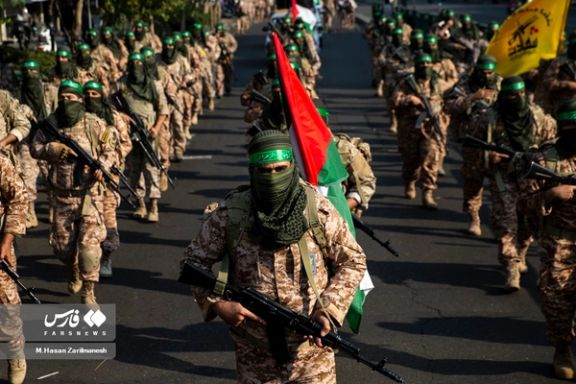
In a bipartisan move, a group of US congresspeople have urged Washington ally Canada to designate Iran's Revolutionary Guards (IRGC) as a terrorist organization.
“The IRGC means what it says, and neither engagement nor concessions will change this underlying reality,” wrote the group of 14 House legislators in a letter sent Wednesday to the Prime Minister of Canada Justin Trudeau.
Representatives Claudia Tenney (R-NY) and Jared Moskowitz (D-FL) co-authored the letter, which was co-signed by eight Republican members and four Democrats.
“The October 7, 2023, terrorist massacre by Hamas killed Israeli, American, and Canadian citizens, and it was made possible by Iran and the IRGC, which have supported Canadian-designated Palestinian terror groups such as Hamas with arms, training, and hundreds of millions of dollars in funding for years,” the letter said.
Pointing out comments made by the spokesman for Iran's Armed Forces Abolfazl Shekarchi declaring Hamas' recent offensive against Israel the "greatest success" of the Islamic world, the letter continued: "By officially designating the IRGC as a foreign terrorist organization, Canada can join the United States in once again contributing to the global fight against terrorism, demonstrating a strong commitment to ensuring peace and stability."
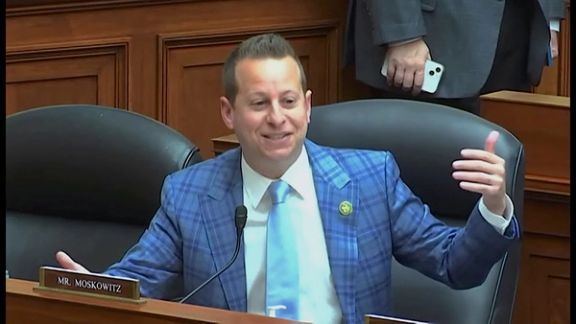
The Trump Administration added the IRGC to the list of “Foreign Terrorist Organizations (FTO)” in 2019 and current President Joe Biden determined in May that the group should remain on the terrorist blacklist.
While in June the Canadian Senate passed a non-binding resolution calling for Canada to designate the Iranian military and intelligence entity, no formal action has yet been taken.
Canada is rejecting calls to proscribe the IRGC, despite the presence of hundreds or even thousands of regime-connected officials on its soil. Among the reasons given to date for not banning the IRGC is that some Iranians are required to serve in the organization, as part of their mandatory military service
According to a lengthy report published by Canadian news outlet Global News in November, Iranian dissidents are still under threat in Canada as a result of the presence of regime insiders.
In response to the report in November, the Canadian opposition leader called for immediate action against the Iranian regime. Pierre Poilievre described the vast scope of the problem as "shocking" and the number of agents mentioned in the report as "staggering".
A number of measures, however, are being taken, including efforts to deport individuals linked to the IRGC. Canada's Minister of National Defense, Bill Blair, stated on Tuesday that in spite of background checks for people entering Canada, it is "entirely appropriate" to remove individuals if new information becomes available.
Last week, Canadian officials informed Iran International that 10 individuals affiliated with the Islamic Republic have been found "inadmissible" and must leave the country.
Also, as reported by Global News on Tuesday, an alleged senior Iranian official found living in Canada is undergoing deportation proceedings.
Despite these steps, critics contend that if the IRGC were listed as a terrorist organization, members who hold Canadian citizenship would be held liable for crimes committed abroad and would be subjected to harsher punishments.

Iran-linked hackers targeted a water facility in the rural area of County Mayo in Ireland, leaving the residents without water for two days earlier this month, Recorded Future News reported.
“The attack saw outages for approximately 160 households over two days, and was as a result of the exploitation of a vulnerability in a particular type of programmable logic controller,” said a spokesperson for Ireland’s Department of the Environment, Climate and Communications (DECC).
The attack was carried out by pro-Iran Cyber Av3ngers group which wrote a message on the infected computer system and claimed that the facility was targeted because it used Unitronics Vision Series programmable logic controllers (PLCs), an Israeli-made piece of equipment.
According to the report, the Irish government has notified other Unitronics owners all over the country in an attempt to avert possible future attacks.
“This exploitation was carried out on a global basis, and there is no suggestion that services in Ireland were specifically targeted,” DECC spokesperson went on to say.
Earlier in December, US and Israeli cybersecurity officials warned that IRGC-affiliated Cyber Av3ngers has launched a malicious campaign to target Israeli-made PLCs.
Earlier in November, Microsoft’s Threat Analysis Center reported that the Islamic Republic has intensified its cyberattacks and influence operations since 2020, targeting Israel and Bahrain, for instance.
Iran, Russia, and China are likely to plan to influence the upcoming elections in the United States and other countries in 2024, Microsoft added.
In July, Claudia Plattner, the head of the German Federal Office for Information Security (BSI), warned of a growing threat from Iranian, Russian and Chinese cyber-attacks. “The goals are espionage, destabilization and influence,” Plattner said.
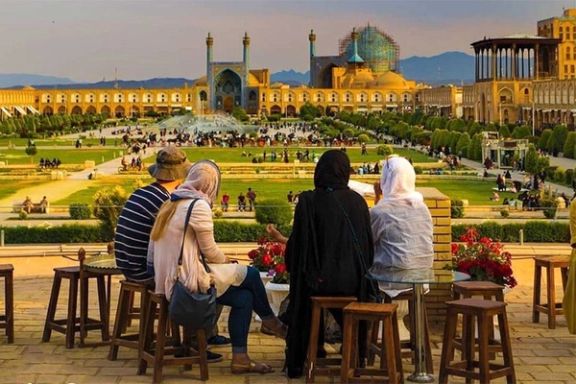
Iran has lifted visa requirements for visitors from 33 countries, including Russia, in an attempt to boost tourism.
Minister of Cultural Heritage, Tourism, and Handicrafts, Ezzatollah Zarghami, said the cancellation of the visa requirements was approved in a government meeting on Wednesday.
The countries benefiting from the measures include Russia, whose citizens have experienced increasing difficulties travelling abroad since the invasion of Ukraine last year.
In total the states concerned comprise 17 Asian countries, 6 African countries, 5 European, and 5 Latin American states, according to Iranian news agencies.
The Asian countries on the list encompass India, the United Arab Emirates, Bahrain, Saudi Arabia, Qatar, Kuwait, Lebanon, Uzbekistan, Kyrgyzstan, Tajikistan, Indonesia, Japan, Singapore, Cambodia, Malaysia, Brunei, and Vietnam. European countries include Russia, Bosnia and Herzegovina, Serbia, Croatia, and Belarus. The Latin American countries in the list are Brazil, Peru, Cuba, Mexico, and Venezuela.
African countries mentioned are Tunisia, Mauritania, Tanzania, Zimbabwe, Mauritius, and the Seychelles.
According to statistics from the Ministry of Cultural Heritage of Iran, during the first six months of the current Iranian year, 3,354,185 individuals traveled to Iran. The figure includes citizens from neighboring countries such as Afghanistan making visits for non-tourism reasons.
Despite boasting a rich cultural and historical legacy and captivating natural landscapes, in recent years Iran has encountered difficulties in drawing foreign tourists. This challenge has been compounded by reports of the detention of foreigners and dual-nationals, contributing to a decline in tourism interest. Visitors must also contend with stringent dress codes for women and limitations on alcohol and nightlife following the 1979 Islamic Revolution.
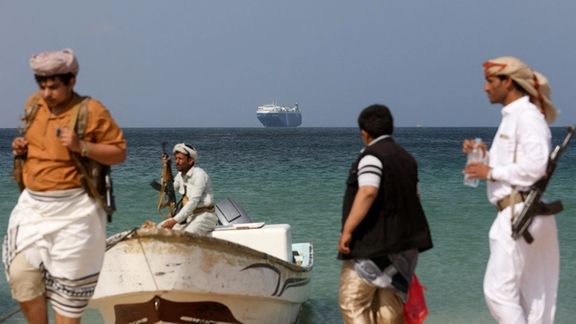
Iran’s Defense Minister Mohammad-Reza Ashtiani rejected as “irrational” a US plan to launch a multinational naval coalition to guarantee maritime safety in the Red Sea.
The region has no room for any more power struggles, Ashtiani said, further stressing that in case Washington’s decision is executed, it will face “extraordinary problems.”
Amid attacks by Iran-backed Houthis on commercial shipping off the coast of Yemen, he referred to the Red Sea as “our region” and warned that “nobody can make a move in a region where we have predominance.”
While adopting a defiant and threatening tone, Iran’s defense minister did not specify the moves Tehran is ready to make if the idea of a multinational naval force is implemented.
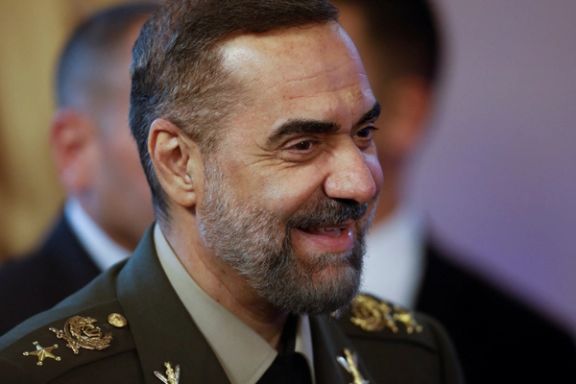
His remarks came three days after US National Security Adviser Jake Sullivan announced that Washington is considering to beef up measures to protect shipping in the Red Sea where Iran-backed Yemeni Houthis have been targeting vessels over the past weeks.
“We are in talks with other countries about a maritime task force of sorts involving the ships from partner nations alongside the United States in ensuring safe passage,” he pointed out.
Sullivan called this plan Washington’s “natural response” to the ongoing situation in the Red Sea. Active negotiations are being held with US allies about escorting ships in the region but nothing has been finalized yet, he went on to say.
According to reports, 12 countries may join the US-led naval coalition.
On Wednesday, Mohammed Al Bukhaiti, a Houthi official, said his group possesses “formidable leverage” against countries that participate in a naval coalition in the Red Sea.
Though the Islamic Republic has avoided any direct military involvement in the Israel-Hamas conflict, the regime has used its allies such as Houthis and militant groups in Iraq and Syria to attack Israel and American targets in the region.
Houthis have intensified their attacks since the truce agreement between Israel and Hamas collapsed on November 1.
On Wednesday, Yemeni Houthis fired two missiles that missed a tanker carrying jet fuel and headed to the Suez Canal.
A US Navy warship also shot down a suspected Houthi drone flying in its direction during the same incident, a US official was quoted as saying by the Associated Press.
Houthis further attacked the Norwegian commercial tanker STRINDA with a rocket on Tuesday.
Back in November, Iran’s proxy group also seized a cargo ship called “Galaxy Leader” in the southern Red Sea as it was sailing from Turkey to India.
Houthi military spokesperson Yehia Sareea vowed that the group would continue blocking ships heading to Israeli ports until Israel allows the entry of food and medical aid into the Gaza Strip - more than 1,000 miles from the Houthi seat of power in Sanaa.
US National Security spokesman John Kirby took Iran to task last week for destabilizing the region by providing financial and military assistance to extremist militant groups, such as Yemeni Houthis.
“We know that the Houthis are supported by Iran, not just politically and philosophically but, of course, with weapon systems,” he stressed.
On December 7, the US Department of Treasury slapped sanctions against 13 individuals and entities over their role in financing Iran-backed Houthis in Yemen.
Supported by the IRGC extraterritorial Quds force, the financing system operated through “a complex network of exchange houses and companies in multiple jurisdictions,” the Department of Treasury announced in a statement.
Despite the recent sanctions, the Biden administration is receiving more and more criticism over its failure to deter Iran and its proxies in the Middle East.
Earlier in the week, Israeli National Security Council head Tzachi Hanegbi said that Prime Minister Benjamin Netanyahu has talked with the leaders of US, Britain, Germany, and France to discuss the increasing threats posed by Yemeni Houthis against Israel-bound ships.
“Israel is giving the world time to organize and prevent it … If there is no international organization - because this is a global problem - we’ll work to remove the maritime closure,” he said in reference to Houthi’s offensives.
The Wall Street Journal reported last week that Washington has urged Israel not to respond directly to drone and missile attacks by Tehran-backed Yemeni Houthis.
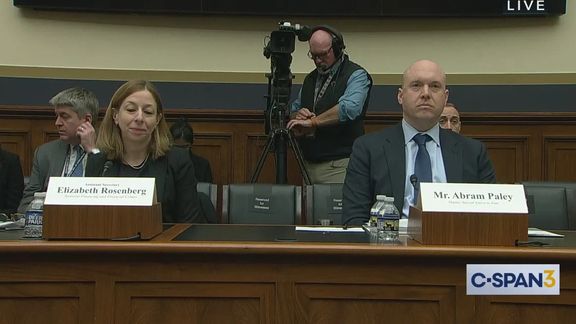
Abram Paley, the US Deputy Special Envoy to Iran, refused to answer a Congressional hearing Wednesday why his predecessor, Robert Malley, has been suspended.
Malley was placed on unpaid leave in April 2023, after his security clearance was withdrawn reportedly for mishandling sensitive information. US lawmakers have tried several times to gain information on why Biden’s top man on Iran lost his security clearance –all to no avail.
The latest hearing on Iran was held by the House financial services subcommittee on oversight and investigation. It was entitled Moving the Money Part 2: Getting Answers from the Biden Administration on the Iranian Regime’s Support for Terrorism.”
Abram Paley and Elizabeth Rosenberg, Assistant Secretary for Terrorist Financing and Financial Crimes, were the two officials testifying in the hearing.
They both confirmed that two transactions have been made from the Iranian funds held in Oman, which were made available to Iran when the US government renewed a sanction waiver allowing Iraq to pay Iran what it owes for imported electricity –reportedly up to $10 billion.
Congressman Bill Huizenga, chairing the hearing, asked if “any issues or problems” have been identified in the two transactions facilitated with the Iranian funds held in Oman. Rosenberg offered to answer “in a closed setting,” implying that the information requested was classified.
"We'll take that as a yes," said Rep. Huizenga.
Other Representatives present in the hearing expressed concerns over the fungibility of the funds made available to Iran, despite assurances by the Biden administration that transactions would only be allowed for humanitarian purposes, such as purchasing medicine or agricultural products.
“Biden’s Deputy Special Envoy to Iran insisted Iran is not to be trusted,” Rep. Dan Meuser posted on X after the hearing. “Yet, this Administration takes Iran at its word that they won’t use the billions of dollars in aid Biden is trying to give them to finance terror.”
Paley explained that the Iraqi sanction waiver has been in place for a long time to allow the country to meet its energy needs. “This is the 21st time it has been renewed,” he said. However, the waiver never allowed Iran to gain access to hard currencies in cash. Money never left Iraq and Iran could only use the funds to import humanitarian needs. For the first time, the Biden administration allowed the funds to go to Oman in June of this year.
Congressman Pete Sessions questioned the reasoning of the waiver and the choice of Oman as the custodian of the Iranian funds.
He said: “[Secretary of State] Blinken statement says France, Italy and Oman faced exceptional circumstances preventing them from significantly reducing their petroleum purchases from Iran… Oman has reserves 79.4 times its annual consumption… This secretary has chosen to fool the US Congress into believing significant and exceptional rather than providing the data and information.”
Paley was also grilled on the now infamous $6 billion released by the Biden administration in September.
This is money from Iran’s oil sales that was blocked in South Korea but was released and transferred to Qatar to help release five Iranian-Americans held hostage in Iran. After Hamas’ October 7 attack on Israel, US officials announced that Iran would not be allowed to access the money “any time soon.”
Paley was repeatedly asked to confirm that the Iranian regime has not had access to this fund. “Not one penny has been spent,” he said.
But Rep. Dan Meuser pressed Paley on this point, enquiring whether the hold on the $6 billion was permanent. Paley couldn’t give a straight yes or no answer. So the statement should really be “not one penny has been spent –yet”, Meuser concluded.
Towards the end of the hearing, Congressman Zach Nunn focused on Iran’s oil exports, noting that there’s been a significant increase in the regime’s revenue –that would be used to fund terrorism, he said.
Neither Rosenberg nor Paley managed to explain the rocketing of Iran’s oil revenue in spite of numerous restrictions imposed by a multi-layered sanctions regime.
Rep. Nunn asked about particular steps taken by the Biden administration to address this –including taking action against those facilitating the exports in the shipping industry. Yet again, neither officials could provide a clear answer.
“Mr Paley, I would like a listing of all the actions that have actually resulted in reduction of oil flow out of Iran into terrorist groups,” Rep. Nunn said in the end, demanding a written answer following the hearing.
The issue of Iran’s oil exports using “ghost fleet” was discussed at length in another hearing on Tuesday, entitled Restricting Rogue-State Revenue: Strengthening Energy Sanctions on Russia, Iran, and Venezuela.